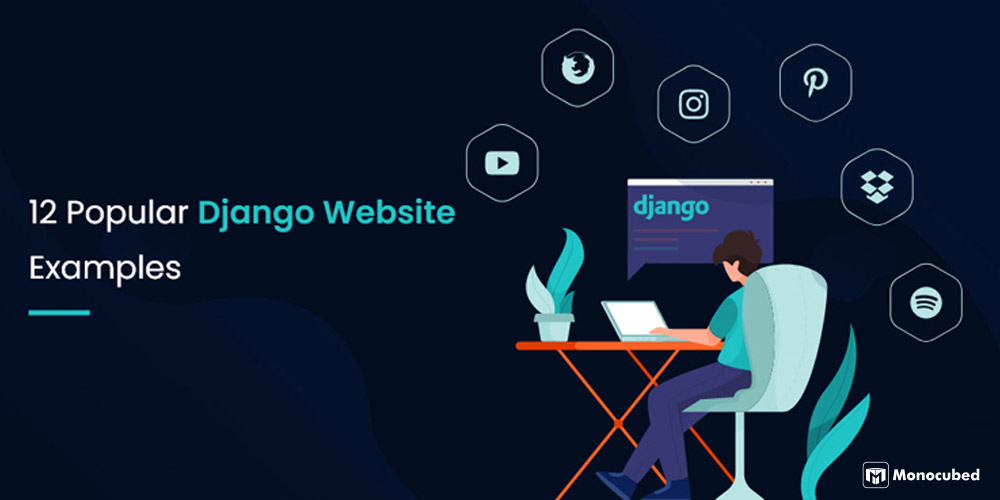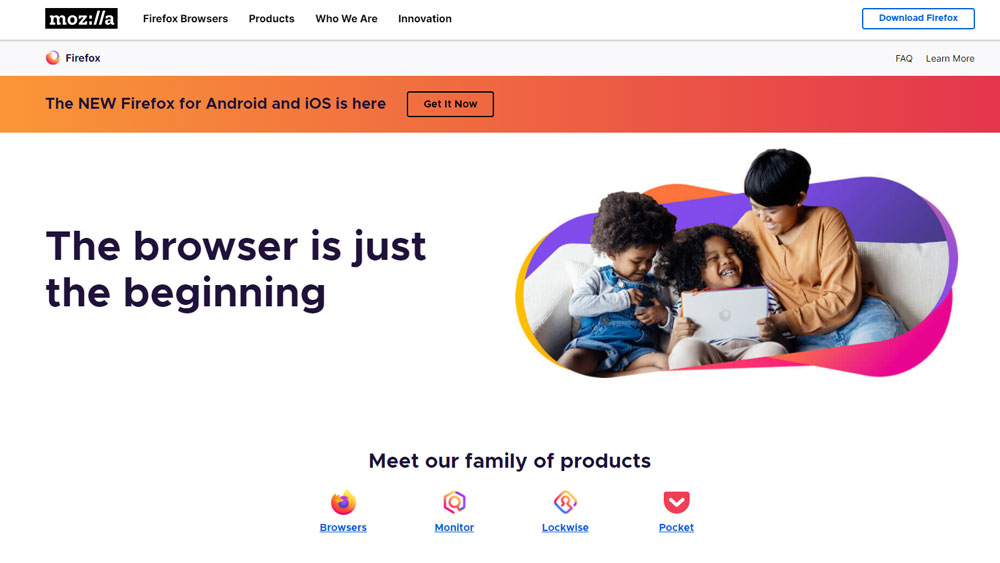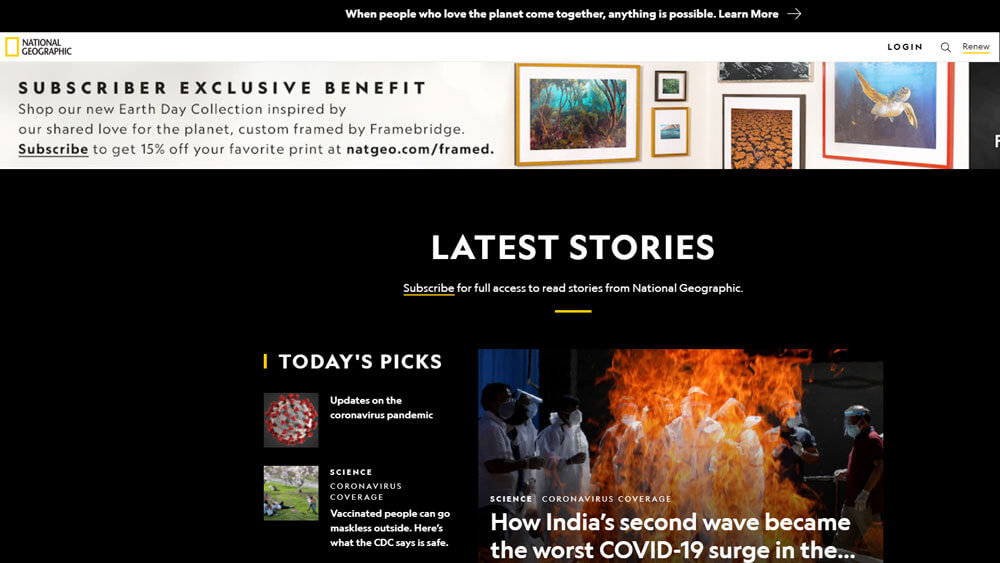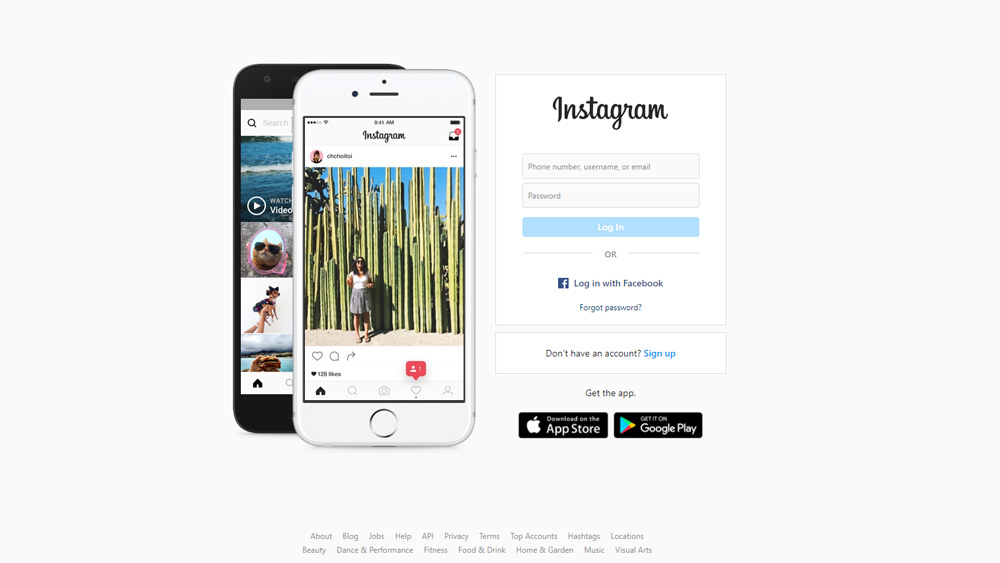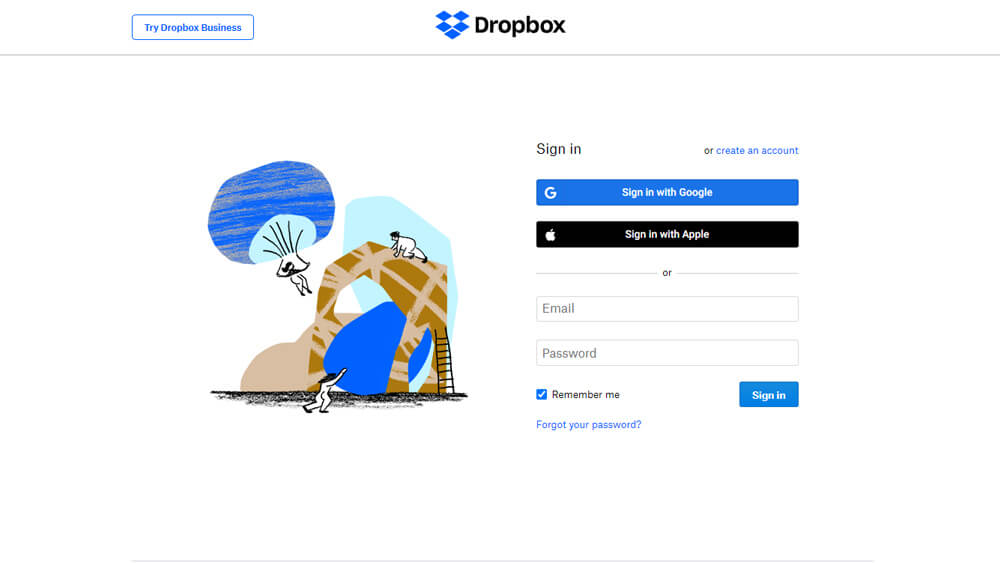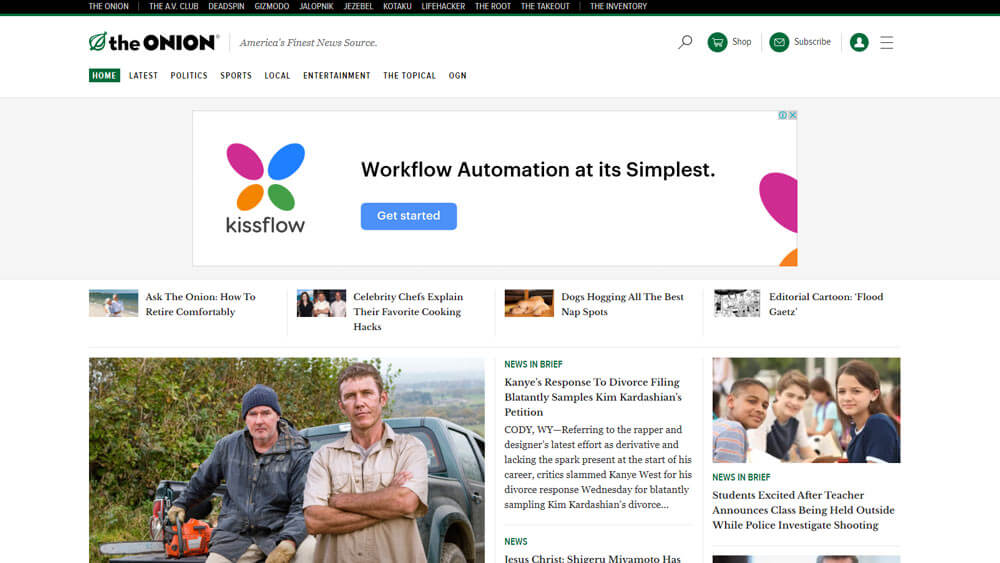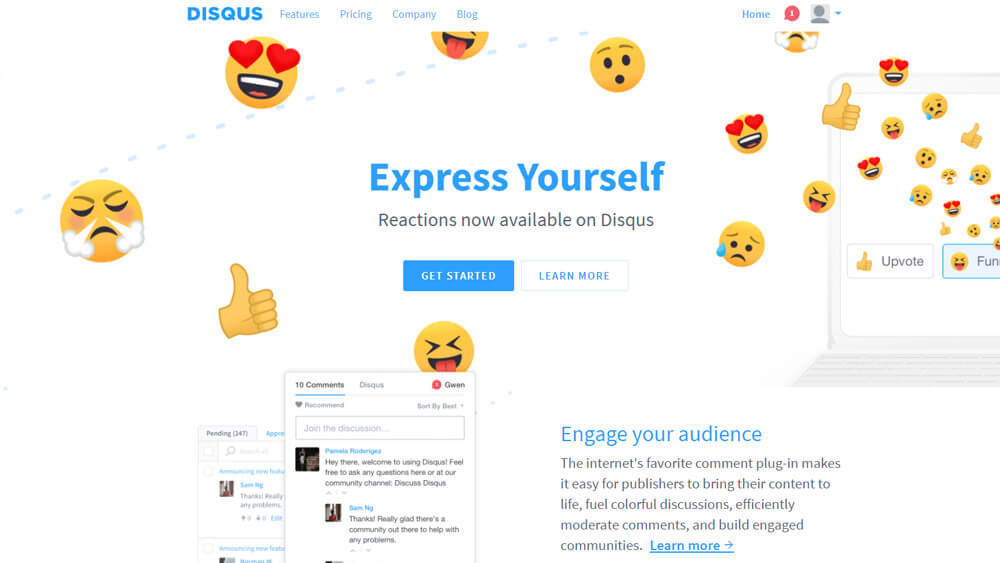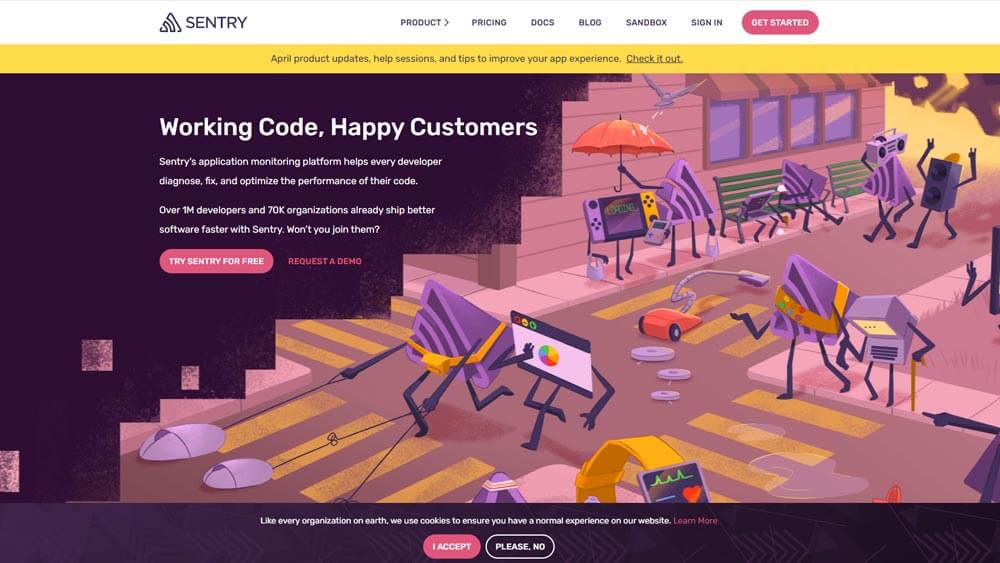Python is one of the most beloved programming languages in the world today. Its popularity has been rising ever since it was released, and it is a top choice for many businesses worldwide. A great advantage of the Python programming language is the numerous frameworks and libraries available in the market.
Talking about one such Python framework, Django is the best framework for Python according to this JetBrains Developers survey 2021 and is used for creating high-performing web applications.
Want to build a Python website using Django?
Worried if Django is the right choice for you?
We have the answer right here for you!
We have curated a list of the top 12 Django website examples in this blog. As a Python web development company, we also use Django in a lot of our projects. We have taken inspiration from other companies who have showcased exceptional growth with Django.
Along with discussing some business giants, such as Netflix and National Geographic, that use Django in their websites, we will also look at the criteria for choosing Django in your project.
But first, let’s briefly look at Django and understand why so many businesses trust it with their websites and apps.
Table of Content
What is Django : A Glance
Django is a full-stack open-source web framework that is used for creating large applications using Python language. Developed by web programmers Adrian Holovaty and Simon Willison at Lawrence Journal-World newspaper, Django is a highly productive solution for building web applications using Python.
Although initially created to meet the needs of the Lawrence.com website, Django soon became popular due to its feature-rich functionalities. It supports rapid and clean development following a DRY (Don’t Repeat Yourself) approach.
Django provides reusable models, functions, classes, and code snippets to avoid writing code for regular tasks. Part of Django’s widespread usage is the ease and speed of development it offers. In a matter of days, you can build a fully functioning app; as with the available libraries, you don’t need to reinvent the wheel and focus on developing your website’s business logic.
Why Do Companies Use Django?
Django is a widely popular framework preferred by developers due to the multitude of features it offers. Offering a set of reusable components, Django applications are fast, scalable and flexible.
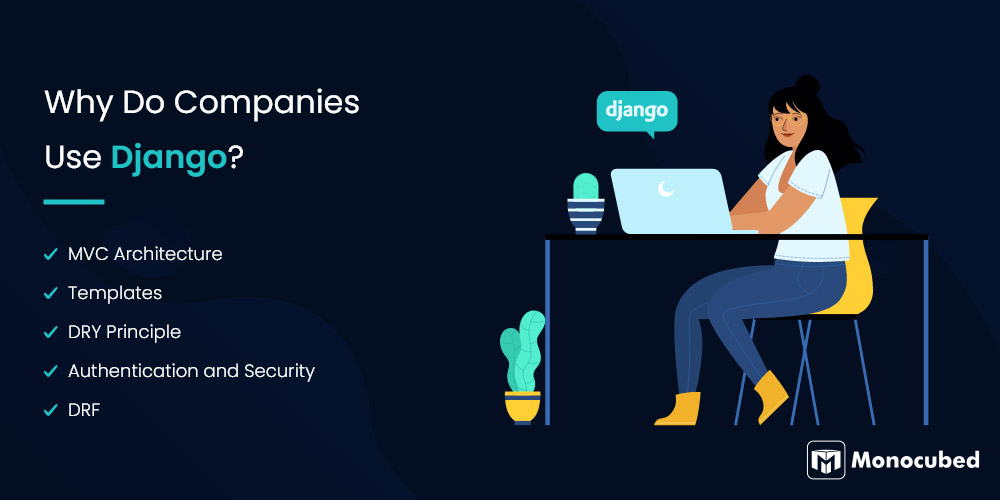
- MVC Architecture
The MVC (Model-View-Controller) architecture enables easy distinction between different layers of a web app. You can work with the application’s visual presentation and logic independently, and Django will automatically update and sync the changes. MVT or Model-View-Template architecture is another way Django developers like you refer to the Django architecture as it uses templates instead of components.
- Templates
Django has a powerful templating engine that works on its personal markup language. Templates are HTML code files that are used to display data- be it static or dynamic. Templates contain no application logic, only having information regarding visual content.
The Django templates are used for generating dynamic HTML web pages.
- DRY Principle
“Don’t repeat yourself” Python employs philosophy to provide developers with a clean, manageable working environment. Django enforces the DRY principle in everything, creating a single space for storing each distinct object. Django normalizes the values everywhere removing redundancies and allowing the developer to focus on the application logic.
- Authentication and Security
Developers chose Django because it comes with a full-featured, secure user authentication system. It handles user accounts, manages cookies, user groups, and sessions, and keeps track of permissions. This lets you easily build sites that allow users to create accounts and safely sign in and out of the accounts.
Django has a state-of-the-art security system that helps developers against common security lapses such as SQL injection, cross-site scripting, clickjacking, and cross-site request forgery.
- DRF
The Django REST framework (DRF) is a component toolkit built on top of the Django framework for creating REST APIs. An API is an interface for interacting with databases. RESTful APIs are conformed to the REST architecture and are used for listing, modifying, creating, and deleting data on web servers using the HTTP protocols.
With DRF, developers have access to web browsable APIs with a huge Django community backing and easy-to-use documentation.
Want to Develop A Secure Web App?
Leverage our expertise in Django development to develop a highly secure, modern web app for your business.
12 Highly Successful Django Website Examples of 2022
According to SimilarTech, currently there are more than 80 thousand active websites made with Django. A full-stack batteries-included framework, Django is used by companies of various sectors be it internet services or telecommunications industry, or entertainment and food businesses.
With so much focus on security and user privacy, the Python-based framework is a top choice for government applications and e-commerce and healthcare websites. Some popular websites and web apps that use the Django framework are –
-
Youtube
Having a user base of over 2 billion, YouTube is considered to be the 2nd most popular search engine after Google. A video-sharing platform, youtube, allows users to upload videos and earn money through traffic generated.
Youtube is a prime example of the capabilities of Python and Django for robust dynamic applications. Django enables the website to handle high traffic demands and support millions of data requests daily.
-
Mozilla Firefox
One of the most popular browsers, Mozilla, has to handle huge amounts of users. Given the number of requests they receive via the API, Mozilla had to switch from PHP and CakePHP to using Python and Django web frameworks for their website. The Mozilla support site and the multitude of add-ons and plugins for their web browser are developed with Django.
-
National Geographic
National Geographic is an organization that explores and protects our world. It is another great example of a Django application. The website uses Django to build a custom content management system to manage its content, from images to advertisements to modules.
-
The Washington Post
Django was originally developed to meet the content requirements of the Lawrence Journal-World website. Therefore it is no surprise that the worlds’ leading newspaper and magazine sites such as The Washington Post, The Guardian, or The New York Times also use Django for their applications.
The Django CMS handles large amounts of data generated by the Posts’ daily audience and offers a highly scalable application. The speed and performance of such a large-scale app with such robust features are note-worthy.
-
Instagram
From the beginning, Instagram has used Python as a part of its core technology stack and is one of the best Python Django examples. After multiple migrations, Instagram is currently running on Python 3.5. The co-founders of Instagram used the Django web framework to create a quick working prototype in under 2 weeks.
Since Django does not require any external plugins and addons, it is perfect for quickly developing web apps like Instagram without applying out-of-the-box methods. Today, Django supports millions of users of Instagram and is continually updated with new features.
Another advantage of Django that the Instagram developers prefer is its cross-platform usability. The same features can be developed quickly for Android and iOS applications and released simultaneously.
-
Pinterest
Django is a popular framework for developing social media platforms such as Pinterest, Instagram, and Reddit. It has utilities to deal with massive amounts of data and handle multiple user interactions every second.
Pinterest has around 250 million active users, so it is important to have a high-performing website that has speed and scalability. Pinterest uses Django to handle thousands of users simultaneously and enable managing followers, boards, pins, and posts.
-
Dropbox
One of the world’s largest cloud storing applications, DropBox has revolutionized the data storage process. Using the cloud, you can access your files anywhere and from any device.
Dropbox is the most famous and popular cloud storage application for documents, videos, graphics, and photos. Dropbox allows us to store, sync, and share almost anything using Python’s power. Python was used to build the backend and client software of Dropbox. With Django, developers were able to quickly add features such as user history access, version control option, account synchronization across multiple devices, and file-sharing services.
-
The Onion
The Onion is another great Django website example. A satirical newspaper that reports on world news in a humorous manner, The Onion developed an online website version in 1996.
Since then, all publications, designs, articles have been published online. The Python website was so successful that the company ceased print publishing in 2013. Today, it is one of the most famous sources of news. Django was used for developing all the features and functionalities of the site.
-
Spotify
Spotify uses a combination of Java, Python, and C++ for their mobile app and website. Spotify, working on multiple devices, allows users to download and listen to music. It is a famous platform, with many artists releasing their albums directly on it.
It handles a vast amount of data of millions of users, creating personalized playlists and recommendations using Python’s Machine learning capabilities. The Django framework was the perfect choice because of the need for Fast backend and machine learning options.
-
Disqus
Disqus is a website comment plugin service that enables users to engage in the comment box. One of the most popular comment plugin options of today, Disqus offers vast customizations using Django.
With the capability of handling thousands of users at a time, the development team at Disqus used Django’s scalability, maintainability, and high-performance speeds.
-
Sentry
The Disqus engineering team, along with using Django extensively in their platform, also developed Sentry, an internal tool for monitoring errors, bugs, and app crashes. Sentry is open-source software that various companies and organizations use for error checking.
Sentry supports more than 30,000 companies and their projects, including Instagram, Reddit, Prezi, and DataDog.
-
NASA
Since security is highly important in Django, Python is often used along with Django in government applications and healthcare websites. One such example is the website of the USA National Aeronautics and Space Administration or NASA. The Django website manages more than a million users on a daily basis.
Although relatively simple in its design, the NASA website supports high-definition videos of space and most importantly meets the high-security requirements of the company.
These are some examples of popular websites built with Django that showcase its many features. Having such highly-acclaimed websites in its portfolio, Django is a top framework of choice for web developers.
Want to Develop a Custom Website?
We’ve got you covered. Develop a custom website that works perfectly across all devices- smartphones, tablets, PCs with our experienced team. Let’s talk.
But before deciding if your company should use it, look at some of the pros and cons of using Django on websites.
Pros and Cons of Using Django Framework
Some of the advantages and disadvantages of using Django as a framework for your web application are –
- Highly efficient – From the conception of the idea, to coding and production to release, Django makes the website development process both cost-effective and efficient.
- Batteries-included – In-built libraries and packages enable common tasks such as user authentication, content administration, custom menu designing, session management, and more.
- Admin Panel – The Django admin panel is automatically generated when you create your application. It is a highly customizable and easy-to-use admin interface.
- SEO-friendly – SEO optimization tools are offered by Django for making your website a search engine favorite
- Versatile – As discussed, Django can be used for varied functions and services. It is versatile and supports many technologies.
- ORM support – You write all the table definitions in simple python code, and the ORM (Object-Relational Mapping) layer translates it to the appropriate query language. It also facilitates CRUD operations.
- High-performance – Django websites are very fast and performative handling millions of users expertly.
- Secure – Django provides support against a lot of security attacks such as Cross-site scripting(XSS), Clickjacking, SQL injection, and Clickjacking.
- Clean, pragmatic design – A robust ecosystem with multiple good design practices that provide developers with a straightforward developing environment for web projects.
- Monolithic – Requires a lot of memory and space. High CPU usage is also a problem.
- Not for small projects – With the batteries- included approach, Django can become too much for a small scale project.
- Long lines of code required
- Comparatively slower than other backend frameworks
- Full knowledge required to implement correctly
- ORM is ever-present – It cannot be disabled and everything in Django, be it frontend or backend development, will use ORM.
- Everything has to be explicitly defined. There is a lack of convention in Django.
When Should You Use Django in Your Project?
Django is a multi-faceted framework that has varied usage. But as seen, it also has some cons that you should try to avoid. It is best to use Django when you will be benefited through its advantages and not hindered.
We recommend using Django when you are developing a project that ticks one or more of the below-mentioned points.
- You have a highly data-driven website
- Developing a robust application using Python
- You are likely to face heavy user traffic
- Long term projects that will undergo multiple updates
- Large development teams that require standardization and consistency
- Customizable web applications such as social media websites
- Require a platform for secure transactions such as eCommerce and Online banking websites
Frequently Asked Questions
-
Which famous website uses Django?
Django is one of the most widely used frameworks for website development. With high market value, Django is the preferred technology for businesses such as Instagram, Eventbrite, NASA, Mozilla, Google, and BitBucket.
-
Why is Django so popular?
Django is a high-level, full-stack Python web framework used for developing large-scale, robust websites. Its popularity curve is always increasing due to its flexibility, productivity, high security, clean UI and batteries included approach.
-
Is Django better than Flask?
Both Django and Flask are Python-based web frameworks that are used for website development. While Flask is a simple, minimalistic micro-framework or Python, Django is a full-stack development framework. Each has its own set of use cases and should be preferred accordingly for businesses.
Conclusion
Django is a robust framework for web app development preferred by popular companies. The flexibility, security, scalability, and vast array of plugins and libraries it provides, makes it one of the most used frameworks today.
If you are building long-term solutions in the form of large, scalable applications, Django is the ideal choice for you. For expert guidance, you can contact Monocubed, where our team of developers will assist you in all your development needs.
For more information on Python and Django, you can read our collection of blogs on Python. Please subscribe to our newsletter, if you would like to receive daily blogs and updates on web development.
 By Jeel Patel
By Jeel Patel
